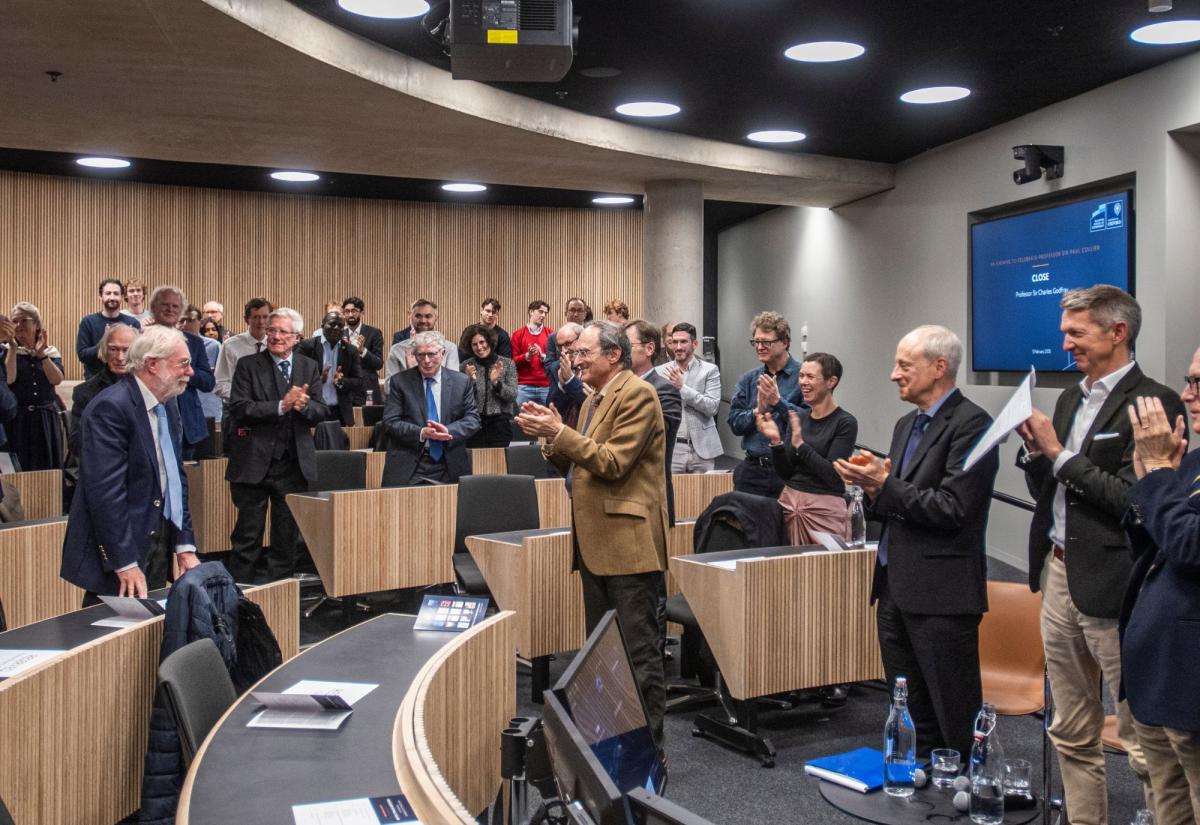On Thursday 2 May, Visiting Professor Dani Rodrik gave a public lecture entitled 'The Globalisation Paradox' to students and faculty from around the University. This paradox is illustrated in what he calls the 'Globalisation Trilemma': countries cannot have national sovereignty, hyper-globalisation and democracy; they can only ever choose two out of the three.
For many economists, he said, 'a market is a market is a market'. However, this does not always tell the full story. Setting out a series of thought experiments based on competition between two firms, Professor Rodrik showed that transnational markets create a host of exciting possibilities for trade, but they can also undermine accepted domestic norms, regulations and institutional practices.
Professor Rodrik suggested three possible responses to this challenge:
- Ignore the problem and push for deeper globalisation, at the cost of damaging cross-border consequences.
- Harmonise trade rules across the board, at the cost of imposing ill-fitting rules on all.
-
Restrict globalisation, at the cost of giving up some gains of trade.
To address this conundrum, Professor Rodrik proposed a compromise he calls 'democracy-enhancing globalisation'. Unlike hyper-globalisation, which justifies all rules that restrict democracy in the name of free trade, democracy-enhancing globalisation would, in his view, not undermine the legitimacy of countries' democratic institutions. It would instead involved using democratic processes to open up markets and harmonise trade rules.
He set out two examples of federal union and regional integration to illustrate the Globalisation Trilemma: The European Union and the United States.
The European Union is essentially a globalisation experiment on a regional scale. Its incomplete integration has become painfully apparent during the euro crisis. The European Central Bank is the lender of last resort, which necessitates some form of banking union. If banking union is needed, then so is fiscal union, and fiscal union cannot work without political union, which means giving up sovereignty.
By contrast, the US has a fully-functioning currency union because all banking and cross-border trade are regulated by the federal government, and the residents of each state have representation in Washington, DC. This is not true of the Eurozone, where ordinary residents often don't feel they have a voice in the hugely important economic and political decisions being made about their countries' future.
Professor Rodrik believes a partial breakup is likely due to the strain of high unemployment on southern European countries. Democracies simply cannot sustain this kind of situation for long.True federal unions take a long time to construct, he explained, and the EU does not have either time or a stable environment. In the end, some European countries may opt for democracy and national sovereignty over more and more cross-border integration - just as his Trilemma predicts.
Professor Rodrik is the Sanjaya Lall Visiting Professor of Business and Development in association with Oxford University's Green Templeton College and the Social Sciences Division. He is also the Rafik Hariri Professor of Political Economy at Harvard University's Kennedy School of Government. His most recent book is 'The Globalization Paradox: Democracy and the Future of the World Economy', published by W.W. Norton & Company, Inc.



